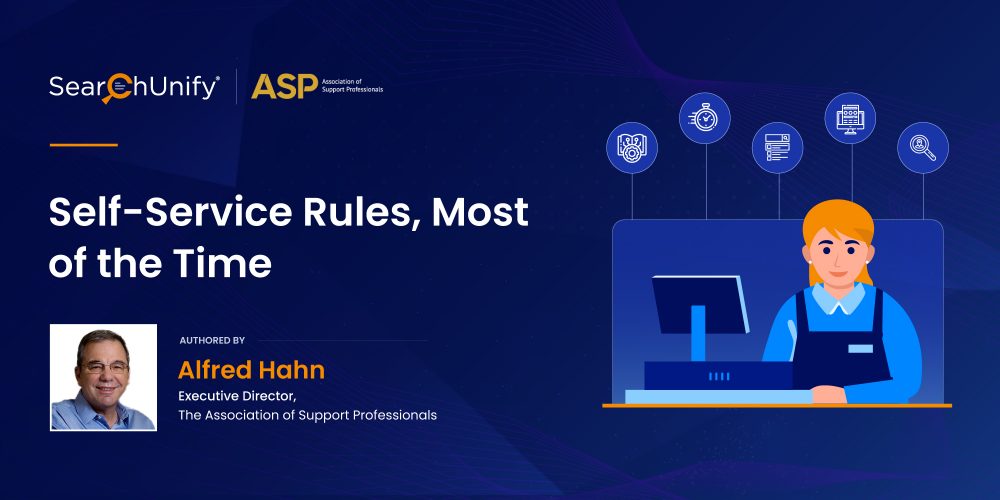
In today’s world, self-service rules. Most people want to do everything on their smartphones. With minimal effort. They demand a great experience while doing these things. And they are getting it. Because if you disappoint them, they leave you immediately, or as quickly as they can. Sure, some B-to-B customers cannot change so quickly, but they still want to. Since Amazon and Google have been setting the expectations, B to C is driving expectations. If you think that you are immune because you are B to B, you are delusional.
That said, self-service rules, except when it can’t. Some issues are just too complex to be handled quickly and well with self-service. They require intervention by our skilled, trained, and resourced expert support employees. Large Language Models (LLM) of Artificial Intelligence like ChatGPT are going to change some of that, but it will take longer than the public thinks for it to happen. Sure, our companies would like to snap their fingers and have it happen, but that changes when they get the price tag. Data scientists are not cheap or plentiful. These things are happening for sure, but they do take a finite amount of time. Unless you know a lot about AI, you will probably need some help.
In the meantime, self-service rules; mostly. The quantity of self-service actions is greater than assisted-support at most companies and trending more in that direction. I don’t see this changing. Over time, self-service will become more dominant and therefore more critical to a company’s success. While investing in AI and other tools, companies would be wise to invest in their digital support teams and their support websites. Reading ASP’s two annual reports on trends and benchmarks from our ASP Best Support Websites activity is also advised to see exactly where state-of-the-art is now.


















